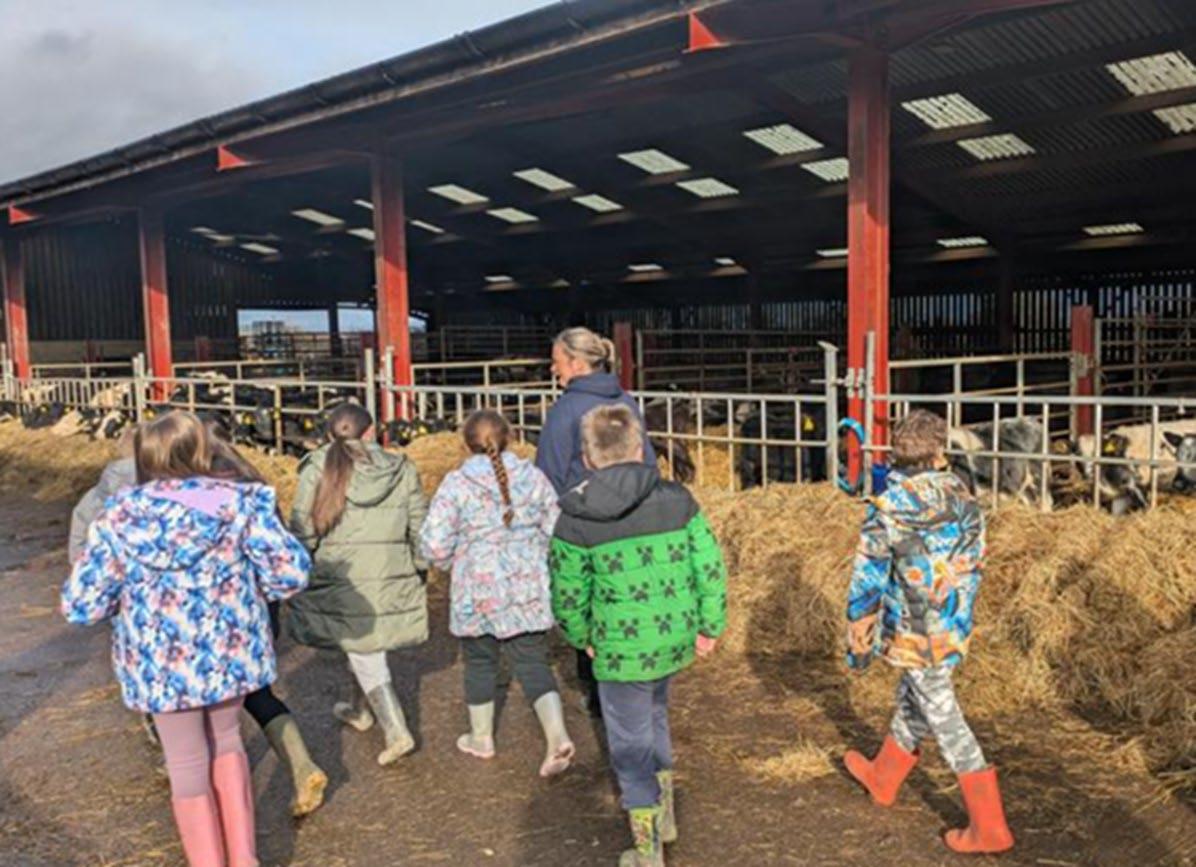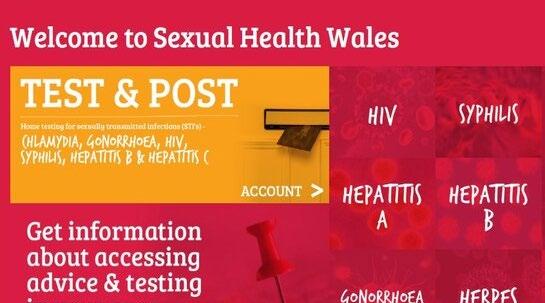

HEALTH PROMOTING SCHOOLS


Welcome
A health promoting school is one that constantly strengthens its capacity as a healthy setting for living, learning and working (WHO).
The ‘Healthy School’ is one which takes responsibility for maintaining and promoting the health of all who ‘learn, work, play and live’ within it not only by formally teaching pupils about how to lead healthy lives but by enabling pupils and staff to take control over aspects of the school environment which influence their health.
It actively promotes, protects and embeds the physical, mental and social health and wellbeing of its community through positive action.
This can be achieved by policy, strategic planning and staff development about its curriculum, ethos, physical environment and community relations.
This e-bulletin includes a range of projects and initiatives that take place in Wales as part of the Welsh Network of Health and Well-being Promoting Schools.
Promoting Health and Wellbeing in Wrexham Schools Through Growing and Cooking Initiatives
Wrexham Health & Well-being Promoting Schools Team, Research Officer, Jacob Davies, Research Project Support Officer
Opening school grounds for play
Marianne Mannello, Assistant Director: Policy, Support and Advocacy, Play Wales
Enhancing Vaccine Literacy in Schools: The All-Wales Immune Patrol Pilot
Megan Richmond-Morris, Public Health Practitioner - Public Engagement Team – Vaccine Preventable Disease Programme (VPDP). Public Health Wales
Claire Woodcock, Service development and userengagement senior practitioner - Public Engagement Team – Vaccine Preventable Disease Programme (VPDP). Public Health Wales
Catherine Courts, Lead Nurse Public Engagement - Public Engagement Team – Vaccine Preventable Disease Programme (VPDP). Public Health Wales
Supporting schools to promote health and well-being in Wales: The Welsh Network of Health and Wellbeing Promoting Schools
Lorna Bennett, Consultant in Public Health, Public Health Wales
Gemma James, Principal Public Health


Through Growing and Cooking Initiatives
Wrexham Health & Well-being Promoting Schools Team,
Research Officer, Jacob Davies, Research Project Support Officer
The health and wellbeing of young people is shaped by various factors including government policy, media, family, friends, and their local environment. Among these, schools hold a unique position to promote positive health outcomes, especially when working in partnership with families and the wider community.
Recent data in Wrexham highlights growing health concerns: fewer than half of primary-aged children eat fruit and vegetables daily, and over 25% of 4–5-year-olds are overweight, with more than 12% classified as obese, the highest rate in North Wales. These figures are more severe
in less affluent communities, where early weight issues are more likely to persist into adulthood, contributing to long-term health problems and lower life satisfaction.
To address this, Wrexham County Borough Council (WCBC), supported by the Wrexham Food Partnership Grant, launched a ‘Good to Grow’ initiative in seven schools located in areas of deprivation. The programme introduces pupils to sustainable food practices by involving them in the full food journey, from growing to cooking and consumption, offering a comprehensive ‘farm to fork’ experience.
Schools received gardening and kitchen equipment, including raised beds, childfriendly tools, and cooking supplies. Additional support came from WCBC’s Carbon Reduction Team, who provided further gardening materials at no extra cost.
Erlas Victorian Walled Gardens mentored schools through each season, advising staff and students on growing techniques and supplying seeds and plants to ensure successful harvests.
Students also visited a local farm, Agri-cation, where they gained first-hand experience of farming, animal care, and ecological sustainability. This visit reinforced curriculum
topics such as biology, food education, and environmental awareness.
To further support families, Betsi Cadwaladr University Health Board (BCUHB) Public Health Dietetics (East) team ran ‘Eat Smart Save Better’ sessions, offering tips on healthy eating and budgeting. Each participant received a recipe book to encourage continued healthy habits at home. Coleg Cambria also contributed by running pastamaking workshops using produce grown by the students themselves and helping pupils develop cooking skills and take pride in sharing food at home.
The impact has been significant. Schools have used their gardens to run cooking and tasting sessions, with surplus produce shared with local families. The hands-on experiences have not only promoted healthier eating habits but also physical activity through gardening and PE. These initiatives equip children with knowledge and skills for lifelong healthy living.
Integrating garden-based learning into the curriculum has opened cross-curricular opportunities in biodiversity, sustainability, food technology, and nutrition. Teachers report improvements in pupil engagement, communication skills, and emotional wellbeing. One school shared how the garden space became a calming area where students felt safe
and empowered to the sense of responsibility and teamwork pupils developed by caring for their plants. The project is also helping schools reduce their carbon footprint and support local wildlife, transforming green spaces into vibrant learning environments.
In summary, the ‘Good to Grow’ scheme has planted the seeds for healthier futures, literally and figuratively by connecting young people with the food they eat and the environment around them.
For further information please contact Nerys.Bennion@ wrexham.gov.uk or helen. jones@wrexham.gov.uk.
Opening school grounds for play

Marianne Mannello,
Assistant Director: Policy, Support and Advocacy, Play Wales
Children and teenagers need and are entitled to quality places and time for play as part of their everyday life within their own community. School grounds often represent the largest single outdoor asset in many communities. Opening school grounds for play has a significant role to play in addressing the urgent need to ensure that more children can access outdoor play.
Throughout Wales many school grounds offer a significant resource for children’s play. In many areas, both urban and rural school grounds offer neutral space in the local community. Having access to such a space can enhance the opportunities that all parts of the community around the school have for outdoor recreation and play.
As noted in guidance for the Welsh Government’s Community Focused Schools programme, opening school grounds for play has a significant role to play in addressing the need to ensure that more children can access outdoor play. It recognises that for many communities, the best space for play are the school grounds, and increased access out of school hours would support those children and families.
As noted in the Welsh Government’s Ministerial Review of Play, schools face several constraints which must be overcome if school facilities are used for activities other than the primary function of educating pupils. These include:
- school leaders and governors expressing a number of concerns, including insurance issues, security or safety and supervision
- possible issues with the facilities and layout
- opening up out of school hours can bring extra maintenance and operational costs.
However, potential benefits make it worthwhile, including:
- improved community engagement and wellbeing
- positive effects on children and teenagers’ health and happiness
- enhancement of the local sense of community.
A key finding of pilot projects that used school grounds for play out of teaching hours was that all the staff that we interviewed realised that many of their fears were unfounded. As a result, they were happy to share control of the space, so fostering community links and a more trusting and democratic use of the space.
Key findings from the various pilot projects include:
- participating schools were supportive, but benefitted from the support staff could offer at the beginning
- parents valued having time, space and permission to support their children’s play
- parents also valued the informal networking with peers and supportive professionals.
The benefits of opening school grounds for play include:
- access to additional facilities and opportunities
- improved local availability of play opportunities
- better opportunities for children to play outside out of school hours
- improved collaboration with other agencies to promote better community facilities.
To support schools to offer opportunities for children to play on school grounds outside of school hours, Play Wales has produced the Opening school grounds for play toolkit. It is designed to help head teachers, governors and local organisations to work together to consider making school grounds available to local children for playing out of school hours. It aims to dispel some worries and offer a starting point. It is intended to support the implementation of Welsh Government guidance regarding the use of school grounds for community use.
Read the Opening school for play toolkit
Mannello, M., Connolly, M., Dumitrescu, S., Ellis, C., Haughton, C., Sarwar, S. and Tyrie, J. (2019) Opening the School Gates: facilitating afterschool play in school grounds in (Ed) Reed, M. and Fleet, A. Rethinking Play as Pedagogy, London: Routledge.

Enhancing Vaccine Literacy in Schools: The All-Wales
Immune Patrol Pilot
Megan Richmond-Morris,
Public Health Practitioner - Public Engagement Team – Vaccine Preventable Disease Programme (VPDP). Public Health Wales
Claire Woodcock,
Service development and userengagement senior practitioner - Public Engagement Team – Vaccine Preventable Disease Programme (VPDP). Public Health Wales
Catherine Courts,
Lead Nurse Public Engagement - Public Engagement Team – Vaccine Preventable Disease Programme (VPDP). Public Health Wales
Overview
Immune Patrol (World Health Organisation) (1) is a digital, game-based learning platform that introduces pupils to foundational concepts in immunology, vaccinepreventable diseases, and the public health rationale for immunisation. Structured around a series of interactive modules, including Diseases and Transmission, Immune System, Vaccination, Herd Immunity, Vaccine Development and Source Criticism, the platform has already been successfully piloted and evaluated in Armenia, Denmark, the
Republic of Moldova, and Ukraine. International evaluations, led by the WHO and academic partners, have demonstrated statistically significant improvements in pupils’ knowledge, motivation, and engagement, with enhanced outcomes reported for the game-based version compared to traditional teaching models.
In 2024 Public Health Wales (PHW) launched the UK’s first trial of Immune Patrol, implementing the platform in schools across Wales, and collating insights from both pupils and teachers. The pilot reinforces PHW’s reputation
as a leader in innovative public health practice, representing the first coordinated national deployment of Immune Patrol within the UK.
An expanded bilingual pilot is planned for Autumn 2025, which will include the interactive game-based platform in the Welsh language. Evaluation will involve pre and post knowledge measures designed by an education specialist in collaboration with WHO, along with teacher implementation surveys.
Rationale and Public Health Imperative
Vaccine literacy refers to the ability to access, understand, and apply information to make informed immunisation decisions, and is a key driver of equitable vaccine uptake. Improving vaccine literacy from an early age helps build lifelong, confident engagement with vaccination services. Schools offer an inclusive, trusted setting for embedding foundational knowledge, particularly among young people who are forming their health behaviours and attitudes.
In Wales, there has been recent evidence of declining vaccination uptake and widening inequality gap within the school-age immunisation programmes, which could lead to increased susceptibility to vaccine-preventable diseases. In line with the National Immunisation Framework (NIF) (2) for Wales, and the Vaccine Literacy Standards for Wales, efforts have focused on developing and implementing innovative, school-based educational interventions to improve vaccine literacy. Public Health Wales introduced and tested the WHO ‘Immune Patrol’ platform, targeted at pupils in Years 6 and 7, with an aim to strengthen immunisation knowledge and general health literacy. The platform offers a pioneering way to tackle
vaccine hesitancy and undervaccination through the Welsh school curriculum.
Preliminary findings from the initial pilot are highly encouraging, indicating significant improvements in pupils’ vaccine literacy, with teachers reporting high levels of usability and curricular relevance, showcasing the platform’s effectiveness as an educational tool.
Call to Action: Interested in Supporting or Participating?
As evaluation of the testing phase concludes and the bilingual expansion approaches, we invite continued collaboration from education, public health, and government stakeholders. We especially encourage schools, particularly those in the Welsh Network of Health and Wellbeing Promoting Schools, to consider participating in this unique opportunity, and to champion vaccine literacy progress within the school community today.
For more information, contact the Vaccine Preventable Disease Programme at: phw. vaccines@wales.nhs.uk
Further Resources
Immune Patrol Game Platform: https://immunepatrol.seriousgames.net/
References
World Health Organisation (2024). Immune Patrol: Innovative learning, critical thinking, healthy futures. Available from: ip_advocacy_ brochure-corr2.pdf
Welsh Government (2022). National Immunisation Framework for Wales. Available from: National Immunisation Framework for Wales
In collaboration with the World Health Organisation (2025)

Supporting schools to promote health and well-being in Wales: The Welsh Network of Health and Well-being Promoting Schools
Gemma James, Principal Public Health Practitioner, Public Health Wales
Health, well-being and educational outcomes are intertwined, and by looking after one, we make a positive impact on another. Schools therefore play a vital role in supporting the lifelong health and well-being of learners, families, staff and the wider community.
The Welsh Network of Health and Well-being Promoting Schools Programme (WNHWPS) is a long-standing initiative that has supported schools to be health promoting since 1999. With over two decades of experience, the programme is internationally recognised as one of the most successful national healthy school initiatives, helping schools embed comprehensive,
whole-school strategies for health and well-being. Nearly all schools in Wales have taken part in the programme and continue to remain actively involved. Twenty-two local health promoting schools teams work closely with schools, applying national tools, standards, and evidencebased guidance.
A health and well-being promoting school doesn’t simply teach about health, it considers health in everything it does. It builds positive relationships, gives consistent messages about health (through actions as well as words) and provides and promotes healthy food, safe environments and enjoyable activities that help learners
lead healthy lives now and in the future. This ‘whole-school approach to promoting health and well-being’ is built on everyone; school leaders, staff, learners, families and their community, working together to promote learner health and wellbeing.
Following the publication of Global standards and indicators for healthpromoting schools and system (WHO/UNESCO, 2021) as well as the introduction of the new Curriculum for Wales in 2022, there has been an increased focus on wholeschool approaches to health and well-being in Wales. In response, Public Health Wales (PHW) has developed, over the
Lorna Bennett, Consultant in Public Health, Public Health Wales
Practice
past two years in collaboration with healthy school teams, the education sector, parents and children & young people, a new framework for whole school approaches to health and well-being in schools. This includes transitioning from current National Quality Award excellence criteria to a set of National Health and Well-being Promoting School Standards.
The new Standards are designed to make it easier for schools to focus on the core principles of a whole-school approach that support a range of health and well-being outcomes. They align with the Statutory Framework for embedding a whole school approach to emotional and mental well-being , embodying the core values of belonging, efficacy, and voice as well as a continuous improvement approach. The new Standards focus on the core principles of a whole school approach
to health and well-being (e.g. leadership and workforce) rather than pre-defined health topics (e.g. tobacco and food & fitness). The Standards therefore provide the flexibility for schools to identify and act in response to their own and their local community’s needs and priorities.
Following an extensive period of engagement during 20242025, PHW are currently finalising the Standards which they plan to launch during 2025-2026 in collaboration with Welsh Government. To find out more about the new Standards you can:
Watch a recently recorded Webinar here.
Read about the proposed set of Standards here: phw.nhs. wales/news/views-soughton-new-standards-for-healthand-well-being-in-schools/ proposed-national-standardsfor-health-and-well-being-
promoting-schools-in-wales/ formerly known as the Welsh Network of Health Promotion School Schemes / Welsh Network of Healthy Schools Schemes
2 Making every school a health-promoting school
– Global standards and indicators
3 Framework on embedding a whole-school approach to emotional and mental wellbeing
| GOV.WALES

Grapevine

National Health Protection Support Team Expands Role to Boost Screening Uptake in Wales
National Health Protection Support Team and Screening Division Oversight Group
he National Health Protection Support Team (NHPST), first mobilised during the COVID-19 pandemic to support contact tracing across Wales, has taken on a new role—helping to improve participation in national screening programmes.
Now a core part of Wales’ preparedness capacity for public health emergencies, the 11-member team—hosted by Cardiff City Council and holding honorary contracts with Public Health Wales—is evolving beyond its original remit. Its current focus is supporting responses to health protection incidents, with a long-term aim of strengthening its wider capabilities in public
engagement and emergency response.
Developing New Capabilities and Strategic Partnerships
In August 2024, building on insights gained during the pandemic, the NHPST began developing new skills in community engagement, research interviewing and enhanced data collection. A strategic opportunity emerged to collaborate with Public Health Wales.
Targeted Intervention: Reaching non-responders
The Screening Division proposed a targeted intervention to increase uptake among first-time nonresponders—individuals who
were invited to their first screening appointment but did not attend. The team was tasked with making follow-up phone calls across two of the five national adult screening programmes:
- Wales Abdominal Aortic Aneurysm Screening Programme (AAA)
- Diabetic Eye Screening Wales (DESW)
The Evidence-Based Approach
Evidence shows that a personalised phone call can significantly increase appointment uptake— especially among people in the most deprived areas—and help reduce health inequalities. The calls also provided an
opportunity to explore barriers to attendance and inform service improvements.
The intervention was developed and delivered collaboratively across Public Health Wales. Notably, the Screening Pathway Administration Team played a key role in managing appointment bookings and fielding the additional call volume.
Skills Development: Training for a Changing Role
To ensure staff were equipped for this expanded role, the Health Protection Training and Guidance Team (TGT) and the Behavioural Science Unit designed and delivered a bespoke training package. Two full-day sessions covered safeguarding, complaints handling, service knowledge, and scenario-based training for complex conversations. An accompanying e-learning resource supported ongoing development. TGT is now
working on a new competency framework to guide future deployment.
Behavioural scientists also worked closely with the team to design a psychologically informed approach and categorise both resolved and unresolved barriers to screening participation, drawing on theory and evidence to shape future service design.
Meanwhile, teams across Public Health Wales helped make the intervention a reality:
- Information Governance supported the creation of a Data Protection Impact Assessment (DPIA) to ensure fair and lawful use of personal data.
- Digital Services led cyber security checks and built automated systems to generate weekly participant cohorts for each screening programme.
Early Results: The AAA Screening Programme Pilot
The AAA Screening Programme was the first to pilot the approach, going live in late January 2025. In its first month:
300 individuals were contacted
167 (55.7%) accepted screening appointments
82 (27.3%) declined
51 had other outcomes (e.g., clinical query or scheduling difficulties)
Looking Ahead: Implications for Public Health in Wales
These promising early results highlight the potential of cross-team collaboration and human-centred outreach to improve engagement and outcomes across the public health system in Wales.
For further information please contact: heather.lewis4@ wales.nhs.uk
Videos




Building Strong Foundations | Cardiff Highlights
The conference aligned with the PHNC objectives of sharing knowledge, facilitating the developments of solutions and approaches and connecting members and building a community.
Building Strong Foundations | Llandudno Highlights
The conference aligned with the PHNC objectives of sharing knowledge, facilitating the developments of solutions and approaches and connecting members and building a community.
WHIASU@20
The landscape of Health Impact Assessment (HIA) has changed massively over the last 20 years, and the Wales Health Impact Assessment Support Unit (WHIASU) have been right at the heart of it since its founding in 2004.

News & Resources

Regular sexual health testing and uptake of new vaccine advised following new report
26-06-2025

NHS Wales empowers public with free diabetes prevention and management app
24-06-2025

Wide inequalities in cancer death rates in Wales remain –with no recent improvement
18-06-2025
The Vision for the Sport and Physical Activity Workforce in Wales
CIMSPA
Prevention-Based Health and Care A framework to embed prevention in the health and care system in Wales
Public Health Wales
Next Issue
FOOD AND NUTRITION

Consuming a healthy diet throughout the life course is pivotal to good health and wellbeing. A nutritious diet supports optimal growth and development, helps prevent malnutrition and non-communicable diseases such as type 2 diabetes, heart disease, stroke, and certain cancers, and contributes to achieving and maintaining a healthy body weight.
However, not everyone has the same opportunity to eat well.
We are calling for contributions that explore the inequalities that shape people’s ability to access and afford a healthy diet. These dietrelated health inequalities are driven by factors including income, education, environment, ethnicity and culture, and they play a key role in driving unfair and avoidable health outcomes. For our upcoming e-bulletin we are inviting contributions from projects and initiatives that address diet-related inequalities. These can be national, regional or local initiatives, policies or programmes from across Wales.
Our article submission form will provide you with further information on word count, layout of your article and guidance for images.
Please send articles to publichealth.network@ wales.nhs.uk by 17 July 2025. Contribute
